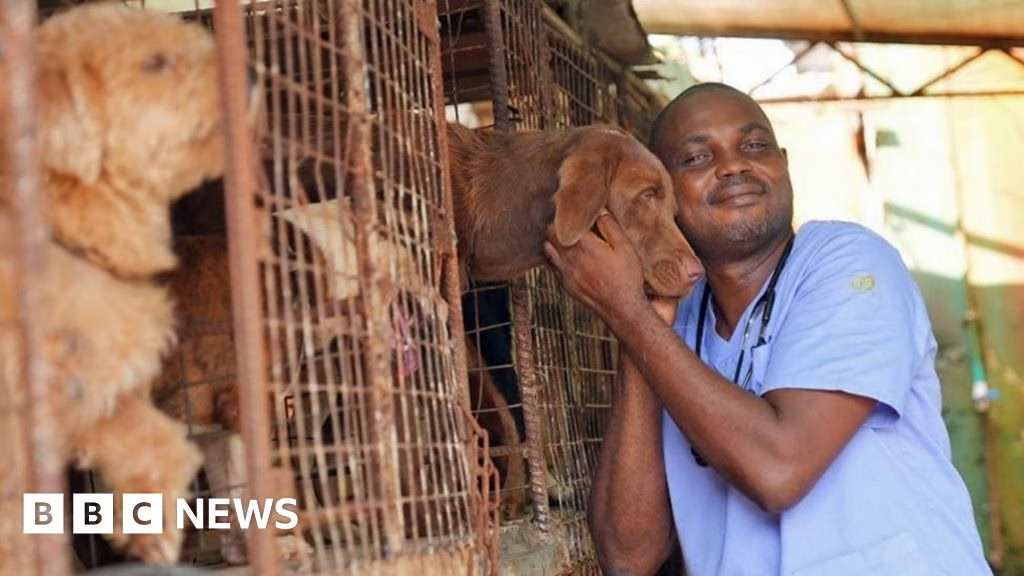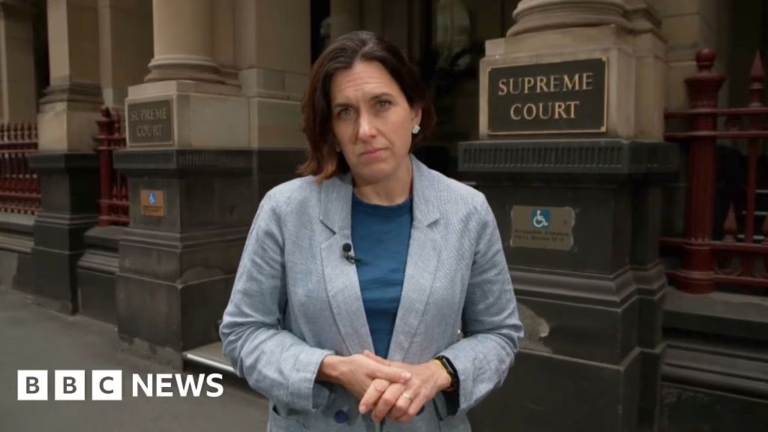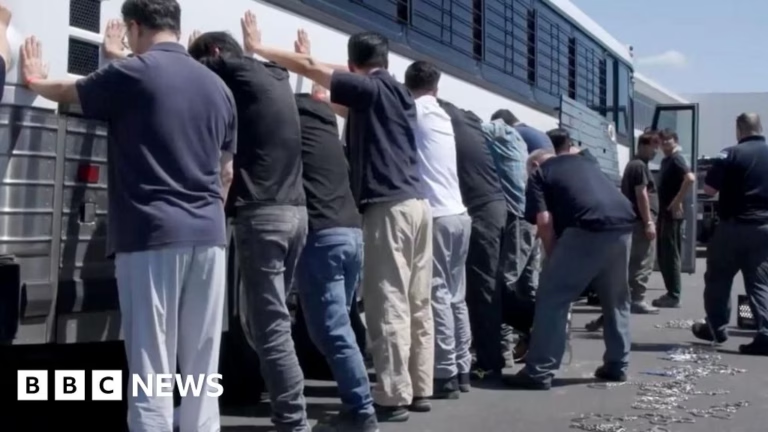BBC News, Lagos

Kelechi Anozia / BBC
Preye Maxwell looks distressed as he leaves his beloved dog Hanks at an animal shelter in Lagos, Nigeria’s commercial hub.
Fighting back tears, he says: “I can’t afford to take care of him. I can’t afford to feed him the way he should be fed.”
His two-year-old American Eskimo barks as his owner turns his back and walks out of the St Mark’s Animal Rescue Foundation in the Lagos suburb of Ajah.
Dr Mark Afua, a vet and chairman of the rescue centre, takes Hanks and puts him in a big metal cage – one of many in the single-storey building designed for dogs, cats, snakes, and other animals.
Hanks wheels around in circles in his cage – and Dr Afua tries to calm the distressed fluffy-haired dog.
Mr Maxwell, an online media strategist, was recently made redundant. His job-hunting means he is never at home and so feels unable to look after Hanks.
“I’m trying to get whatever I have to do to survive. I don’t even have the time now [to look after Hanks] because I’m always out looking for jobs,” he told the BBC.
Kelechi Anozia / BBC
The 33-year-old’s decision was difficult to make, but it is one that many pet owners are taking in the face of the rising cost of living in Nigeria.
Africa’s most-populous nation has been hit by high inflation since President Bola Tinubu came to power two years ago and removed a long-standing fuel subsidy.
The inflation rate surged from 22% in May 2023 to 35% in December 2024, a 28-year high, according to the National Bureau of Statistics (NBS.)
Inflation has since fallen back to 24% but this means that prices are still continuing to rise, just not as quickly as before.
The economic crunch has meant that some companies have had to downsize to keep afloat in the face of rising operating costs, pushing young people like Mr Maxwell into an already saturated labour market.
Animal rights activists and animal shelters say that they are seeing an unprecedented number of abandoned animals as the cost of looking after pets spirals out of control.
Prices for pet food and veterinary care have jumped by more than 100% as some things, especially medication, are imported – and the local currency has plummeted against the dollar.
“About 10 years ago when we started this project, we really didn’t have people giving up their dogs because they were unable to feed the dogs,” Dr Afua told the BBC.
“Right now, we have 10, 12 animals being dropped in a month.”
Some, like Mr Maxwell, hand their pets over to a shelter for adoption, but others simply abandon their animals.
Animal cruelty campaigner Jackie Idimogu, who is president of My Dog and I – a dog-lover’s community in Lagos who often helps to rehome pets, says she has noticed the change.
“Now they don’t even have that patience [to find new owners]. They just tie the dog out to a post on the road or they just unleash it on the road,” she told the BBC.
The 32-year-old says more than 50% of her income as a furniture maker and interior designer now goes on looking after her four dogs.
“I’m spending roughly 250,000 naira ($158; £117) every month on pets,” she says, adding that this includes someone to walk the dogs and look after them when she was not around.
But Ms Idimogu says she cannot bear to give them up.
“As a single lady, I have no kids of my own yet. My dogs are my babies. I don’t see any difference between myself as a dog mum and a human mum. I don’t think I have it in me to give up any of my babies for any reason whatsoever.”
Instead, she has chosen to adapt her lifestyle – fewer luxuries for herself like jewellery, expensive hair styles, and spa visits, and fewer treats for her pets like chicken, yoghurt treats, and car rides.
“I used to be flashy, but now I had to tone down because of my dogs.”
…










